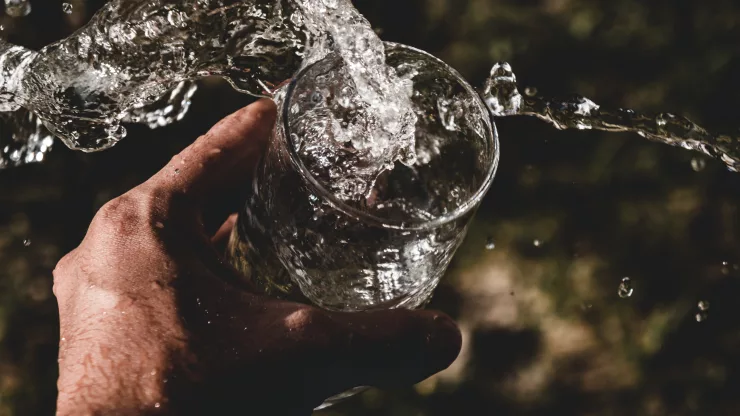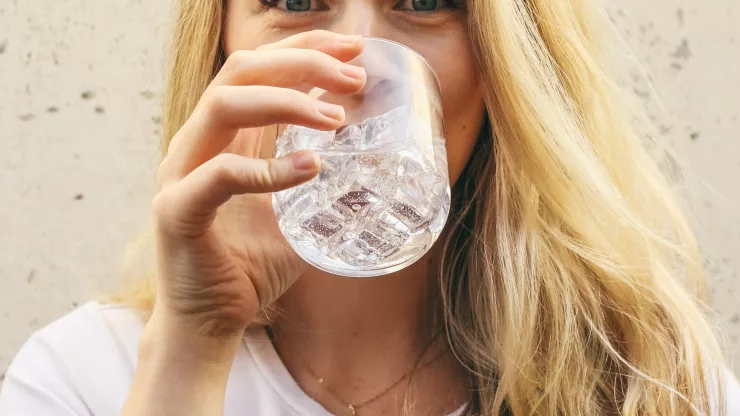Water is essential to life, and it’s vital to keep hydrated to maintain good health. Unfortunately, many people don’t drink enough water, leading to dehydration and various health problems.
In this article, we’ll explore the importance of keeping hydrated and the many benefits of drinking enough water.
We’ll also discuss how much water you need to drink, signs of dehydration, and tips for staying hydrated.
Jump to Section
Understanding the Importance of Keeping Hydrated
Why Hydration is Important
Water makes up about 60% of our body weight and is crucial for various bodily functions, such as regulating body temperature, transporting nutrients, and removing waste.
When we lose water through sweat, urine, and other bodily functions, we need to replenish it by drinking fluids.
If we don’t drink enough water, we become dehydrated, leading to various health problems.
The Science Behind Hydration
Water is essential to life because it’s a solvent, meaning it dissolves and transports substances throughout the body. Water also helps regulate body temperature, which is critical for bodily functions like metabolism and digestion.
The Role of Water in Our Body
Water plays a crucial role in maintaining healthy bodily functions. It helps the body maintain blood pressure, transport nutrients, and lubricate joints and organs.
The Consequences of Dehydration
When we don’t drink enough water, we become dehydrated, leading to various health problems. Mild dehydration can cause headaches, fatigue, and poor concentration, while severe dehydration can cause dizziness, rapid heartbeat, and even death.
The Health Benefits of Regular Hydration
Boosting Physical Performance
Drinking enough water can help improve physical performance by reducing fatigue and increasing endurance. Water also helps regulate body temperature, which is essential during exercise.
Maintaining Healthy Skin
Water is essential for maintaining healthy skin. Dehydration can cause dry skin, wrinkles, and other skin problems.
Drinking enough water can help keep your skin looking healthy and youthful.
Improving Digestion
Drinking enough water can help improve digestion by keeping the digestive system moving smoothly. Water also helps dissolve and transport nutrients throughout the body.
Enhancing Cognitive Function
Staying hydrated is essential for cognitive function. Dehydration can cause poor concentration, fatigue, and mood swings.
Drinking enough water can help improve cognitive function, including memory and attention.
Reducing the Risk of Kidney Stones
Drinking enough water can help reduce the risk of kidney stones. Kidney stones form when minerals and other substances in the urine crystallize and stick together.
Drinking enough water can help flush these substances out of the body before they form stones.
How Much Water Should You Drink?
Daily Water Intake Recommendations
The amount of water you need to drink each day depends on various factors, such as your age, weight, activity level, and climate. Generally, men should drink about 3.7 liters (125 ounces) of water per day, while women should drink about 2.7 liters (91 ounces) of water per day.
Factors That Affect Hydration Needs
Several factors can affect how much water you need to drink each day, such as your activity level, climate, and overall health. For example, if you exercise regularly or live in a hot climate, you may need to drink more water to stay hydrated.
Water Content of Common Foods
You can also get water from certain foods, such as fruits and vegetables. For example, watermelon, cucumber, and celery are all high in water content.
Here’s a table showing the water content of common fruits and vegetables:
| Fruit/Vegetable | Water Content |
|---|---|
| Watermelon | 92% |
| Cucumber | 96% |
| Celery | 95% |
| Strawberries | 91% |
| Pineapple | 87% |
| Lettuce | 96% |
Signs of Dehydration
Identifying the Symptoms of Dehydration
Some common signs of dehydration include thirst, dry mouth, dark urine, fatigue, and dizziness.
Recognizing the Severity of Dehydration
Dehydration can be mild, moderate, or severe. Mild dehydration can usually be treated by drinking fluids, while severe dehydration may require medical attention.
Tips for Staying Hydrated
Incorporating Hydrating Foods and Drinks into Your Diet
One way to stay hydrated is to incorporate hydrating foods and drinks into your diet. Some great hydrating foods include watermelon, cucumber, and celery.
You can also drink water, herbal tea, or fruit-infused water to stay hydrated.
Creating a Hydration Routine
Creating a hydration routine can help you stay on track with your water intake. You can set reminders on your phone or keep a water bottle with you at all times to remind you to drink water.
Hydration Strategies for Different Activities
Here’s a table showing hydration strategies for different activities:
| Activity | Hydration Strategy |
|---|---|
| Exercise | Drink water before, during, and after exercise. |
| Work | Keep a water bottle on your desk and take water breaks throughout the day. |
| Travel | Bring a refillable water bottle and fill up whenever you can. |
Overcoming Barriers to Hydration
Addressing Common Excuses for Not Drinking Enough Water
Some common excuses for not drinking enough water include not liking the taste of water, forgetting to drink water, and not having access to water. You can overcome these barriers by drinking flavored water, setting reminders to drink water, and carrying a water bottle with you.
Tips for Drinking More Water Throughout the Day
Here are some tips for drinking more water throughout the day:
- Drink a glass of water first thing in the morning.
- Drink water with meals.
- Carry a water bottle with you.
- Drink water before, during, and after exercise.
Conclusion
The Importance of Regular Hydration for Overall Health and Well-being
Drinking enough water is crucial for maintaining good health and well-being. It’s essential for regulating body temperature, transporting nutrients, and removing waste.
Staying hydrated can also improve physical performance, maintain healthy skin, improve digestion, enhance cognitive function, and reduce the risk of kidney stones.
Taking Action for Better Hydration
To stay hydrated, aim to drink at least 8 glasses (64 ounces) of water per day. You can also incorporate hydrating foods and drinks into your diet, create a hydration routine, and overcome barriers to hydration.
FAQ
How much water should I drink per day?
The amount of water you need to drink per day depends on various factors, such as your age, weight, activity level, and climate. Generally, men should drink about 3.7 liters (125 ounces) of water per day, while women should drink about 2.7 liters (91 ounces) of water per day.
What are some signs of dehydration?
Some common signs of dehydration include thirst, dry mouth, dark urine, fatigue, and dizziness.
What are some tips for staying hydrated?
Some tips for staying hydrated include drinking at least 8 glasses of water per day, incorporating hydrating foods and drinks into your diet, creating a hydration routine, and overcoming barriers to hydration.

With a deep passion for personal development, Ben has dedicated his career to inspiring and guiding others on their journey towards self-improvement.
His love for learning and sharing knowledge about personal growth strategies, mindfulness, and goal-setting principles has led him to create My Virtual Life Coach.
Contact Ben at [email protected] for assistance.




